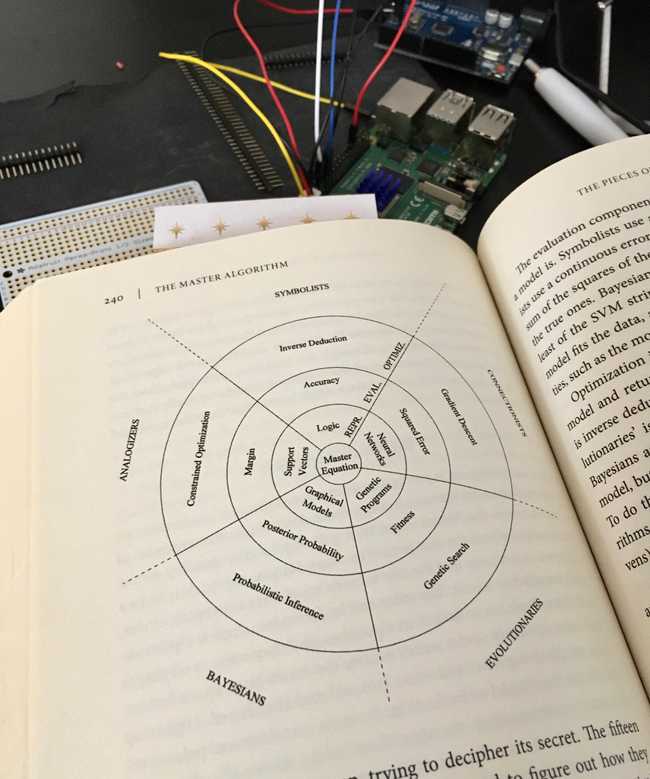Here's another review. This time,
The Master Algorithm by Pedro Domingos
Somewhere in the middle of the book you reach that part that looks like an acid trip. You know, like in every good movie from the 90’s, where the main protagonist faces a moment of hard decision.
In the last chapter, Domingos writes that he found the Master Algorithm. The system is called Alchemy. The only problem with it—its complexity. It's exponential, which means any real-world problem will take years to compute. Domingos explains his algorithm, and I understand it as a model primarily based on Markov chains. Also, Markov decision processes (MDP) are usually used to model high-level planning.
These are amazing tools, you should forget about linear regression.
Though all Machine Learning algorithms cease training when the cost is minimized (the best approximation found), they are created only for one purpose and lack a vector for self-development.
With Markov Decision Processes (MDP) you can specify goals, and they will define the behavior of your channel. This should be in the core, and then you add memory and associations, and then you need specific data processing for pictures, audio, video, and text.
That's it. I don’t like The Master Algorithm, I think it’s written very shallow. It has interesting references but without citations, or code examples, or exercises. Might be interesting if you are only starting out with ML.
3 out of 5.
Reality+
The book [Reality+] mentions hedonism and John Stuart Mill defining a higher pleasure in understanding art.
I’ve been to many museums, and I’ve seen the art. No pleasure whatsoever.
The author tries to prove that in VR one can have a meaningful life. Hedonism is one of the views that can explain values from a satisfaction standpoint but is not good for the justification of life in VR. Which sounds strange. Either he likes VR and enjoys it as a kid or someone paid him to promote the technology.
But I grumbled about art without any reference to the book’s topic. I don’t find a high appreciation of paintings after knowing the history or hidden details as others do. I only see the picture. So I tried to understand how the art evokes emotions, but it doesn’t do it for me.
